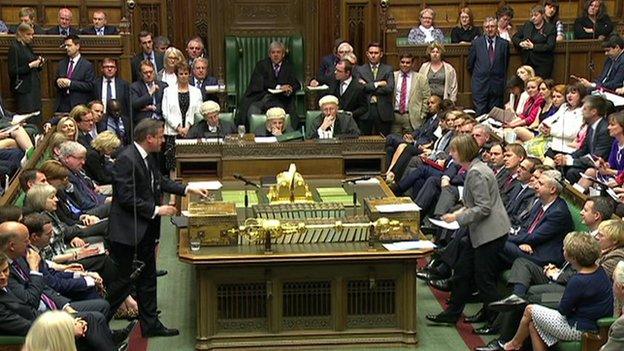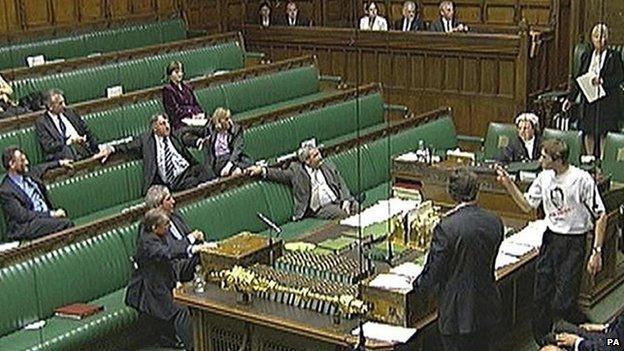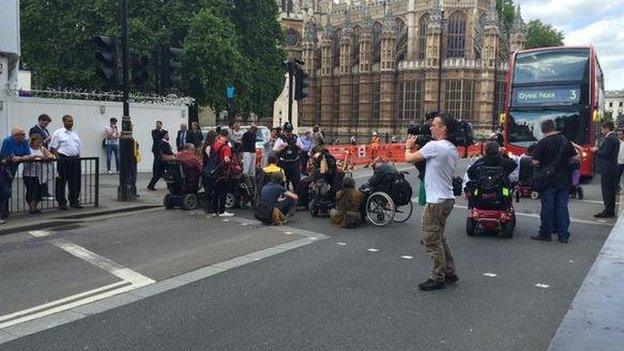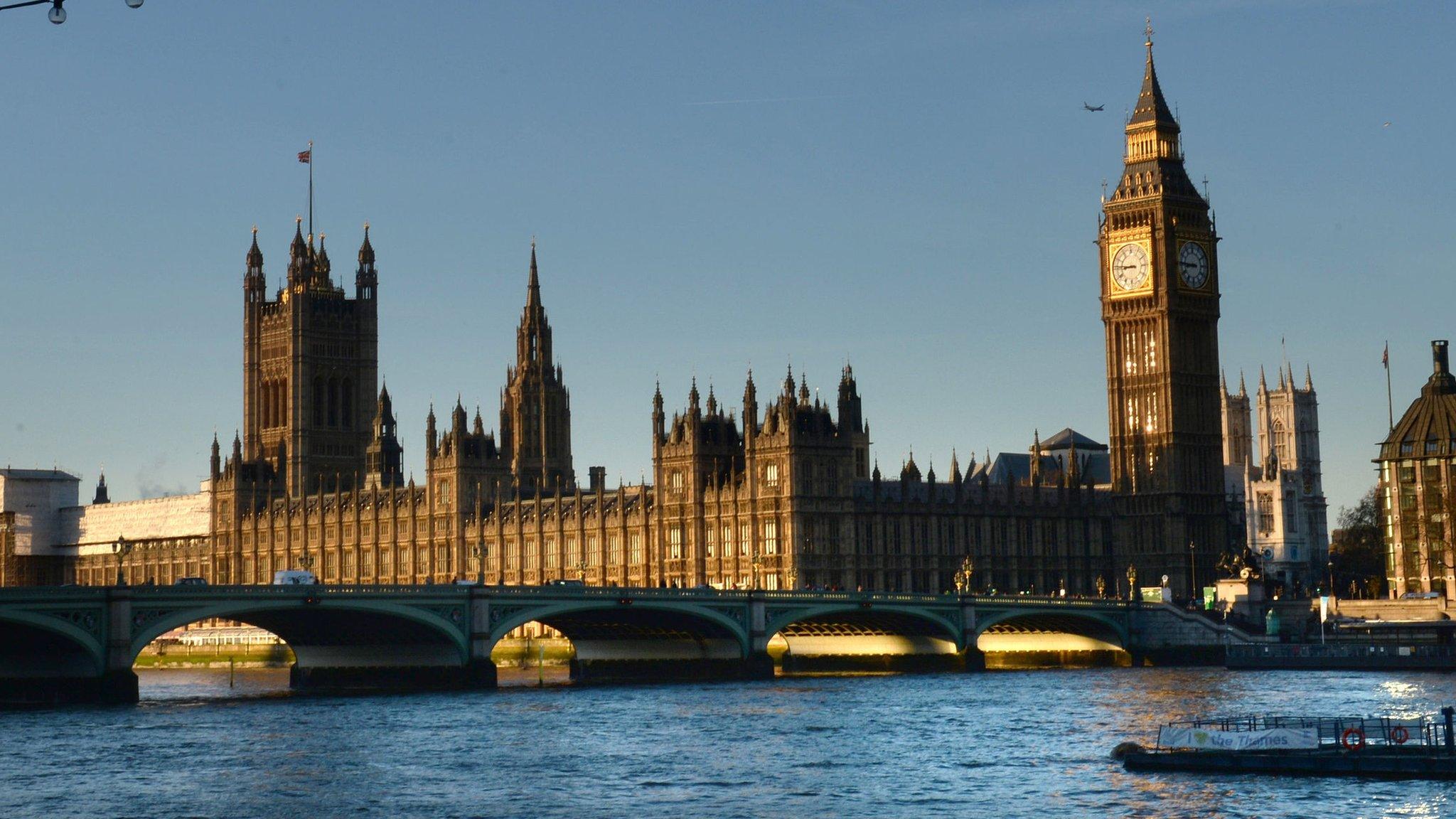Disability fund protest at Prime Minister's Questions
- Published
Chaotic scenes inside parliament as officers tried to clear the lobby - video courtesy katebelgrave.com
Protesters have attempted to enter the House of Commons chamber during Prime Minister's Questions.
The group, campaigning against the end of the Independent Living Fund, were prevented from getting in by police.
BBC assistant political editor Norman Smith said about 20 protesters, many of whom were in wheelchairs, had made their way towards - and attempted to "storm" into - the Commons chamber.
The doors were quickly closed on the chanting protesters, he said.
Protester John Kelly: "This is about our right to independent living"
Prime Minister's Questions carried on inside the chamber, and Commons officials told broadcasters not to film the protest, which continued outside in Westminster's central lobby.

Prime Minister's Questions carried on uninterrupted
The protesters were from a group called Disabled People Against Cuts.
One protester told BBC News the Independent Living Fund, which provides support for some 18,000 people and is worth £320m, was "vital for the lives of disabled people".

Parliament protests

Pro-hunting campaigners invaded the Commons in 2004
A plate of shaving foam was thrust into Rupert Murdoch's face during a select committee hearing about phone hacking in 2011
Six protesters against the expansion of Heathrow Airport climbed on to the roof of the Houses of Parliament in 2008
Five pro-hunting campaigners stormed into the Commons in 2004 during a debate about hunting with dogs
The same year, Tony Blair was hit by a condom filled with purple flour thrown by campaigners from pressure group Fathers 4 Justice. The incident prompted a security review.

The fund is being closed on 30 June with funding and responsibility transferred to councils and the devolved administrations.
Its closure has been challenged in the courts, but was ruled lawful by the High Court in December.
About an hour after Prime Minister's Questions ended, Scotland Yard said the protest was over. It said one person and their carer had been ejected from the Palace of Westminster for disorderly behaviour, but no arrests had been made.

The Independent Living Fund
By Damon Rose, editor, Ouch!
The Independent Living Fund provides money to severely disabled people in order to help them live independently. It typically funds personal assistants, or carers, for up to 24-hours a day to assist in everything from bathing, making meals and turning people in their beds at night.
In December 2010 the government announced that this central pot of money was to close with responsibility with the full budget being passed to local authorities to provide the care - however the devolved budget has not been ring-fenced for disabled people.
They fear they will receive less money, which they say could lead to them not being able to continue life-affirming voluntary or paid work and often say they may have to wait hours for someone to change them.
The alternative could be giving up their homes and moving to residential care - which, with Winterbourne View in recent memory, is not desirable. The ILF gives disabled people the ability to hire and fire their own care and campaigners claim this is cheaper than residential care.
Parachute funding is being offered to ease the blow, however, and some councils have guaranteed keeping the same level of payment.

After the protest ended in the Commons the campaigners blocked the road outside Parliament.

The Department for Work and Pensions said: "While opponents of these reforms scaremonger about support being withdrawn, in reality this is simply a debate about how support should be funded."
A spokesman said all care and support needs of fund users would still be met, "but within a single care and support system".
He added: "More than £260m will be made available to former ILF users in 2015/16 and local authorities and devolved administrations will be fully funded to ensure disabled people get the targeted support they need to live independent lives."
- Published24 June 2015
